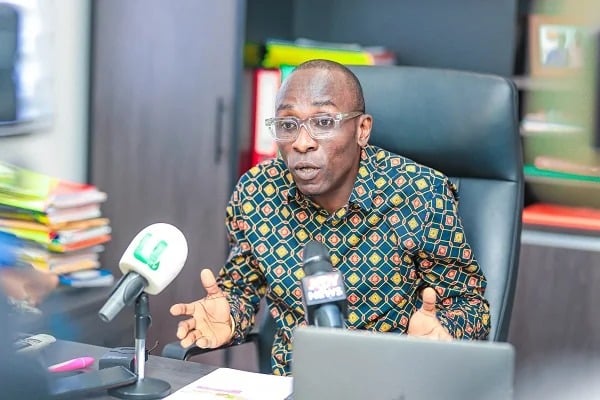Ernest Owusu-Bempah, the Deputy Communications Director of the New Patriotic Party (NPP), has publicly denounced the recent decision by Organised Labour to initiate a nationwide strike regarding the illegal mining crisis, commonly referred to as galamsey. Owusu-Bempah expressed that holding President Nana Akufo-Addo accountable for the issues surrounding galamsey is unjust. He argues that former President John Dramani Mahama is primarily responsible for the institutionalization of galamsey practices in Ghana. During his interview with Oyerepa TV, he emphasized that the anger and demonstrations should be directed at Mahama rather than the current president, suggesting that the roots of the crisis can be traced back to decisions made during Mahama’s administration.
The urgency of the situation has escalated as Organised Labour has declared an indefinite strike starting October 10, 2024, with the aim of urging the government to take immediate and decisive action against illegal mining operations. The coalition, primarily represented by the Trades Union Congress (TUC), has grown increasingly frustrated with the government’s inaction. Previously, Organised Labour had called for urgent measures, including a formal declaration of a state of emergency concerning illegal mining. This demand remained unmet by the government, culminating in a perceived failure to address the crisis by the stipulated deadline of September 30.
In the developing narrative, Owusu-Bempah’s comments reflect a broader political strategy, attempting to shift the blame for the galamsey crisis onto his political opponents rather than engaging in a constructive discussion about solutions. By highlighting Mahama’s role in the genesis of the problem, he seeks to vindicate the current administration and diffuse criticism directed at President Akufo-Addo. This tactic, although politically motivated, may complicate the dialogue surrounding illegal mining and the environmental degradation it causes, as it diverts attention from the pressing need for action and collaborative solutions.
The national strike initiated by Organised Labour is indicative of the growing unrest among various unions and civil society groups regarding the government’s handling of galamsey. With illegal mining representing a significant threat to environmental sustainability and local livelihoods, the urgency for governmental intervention has become palpable. The unions assert that the plight of affected communities and the detrimental impact on the environment necessitate more than mere political rhetoric; it calls for tangible actions that can alleviate the crisis.
Despite Owusu-Bempah’s insistence that the focus should remain on Mahama, the reality remains that the current administration is in power and tasked with addressing contemporary issues. As the unions prepare to mobilize for their strike, the response of the Akufo-Addo administration could be pivotal in determining the trajectory of the galamsey crisis. The call for a state of emergency represents a serious demand for accountability in governance and highlights the responsibility leaders have to protect both the environment and the rights of citizens impacted by illegal mining.
Ultimately, the tension between political narratives and the urgent needs of the populace reveals the complexities surrounding governance and environmental stewardship in Ghana. While Owusu-Bempah’s comments may serve to rally support for the NPP by reframing historical factors, they also risk overshadowing the immediate demands of the people organizing against galamsey. As the strike date approaches, the need for effective dialogue among all stakeholders becomes increasingly essential to navigate the challenges posed by illegal mining and to find mutually beneficial resolutions in protecting the nation’s resources and citizens’ livelihoods.


